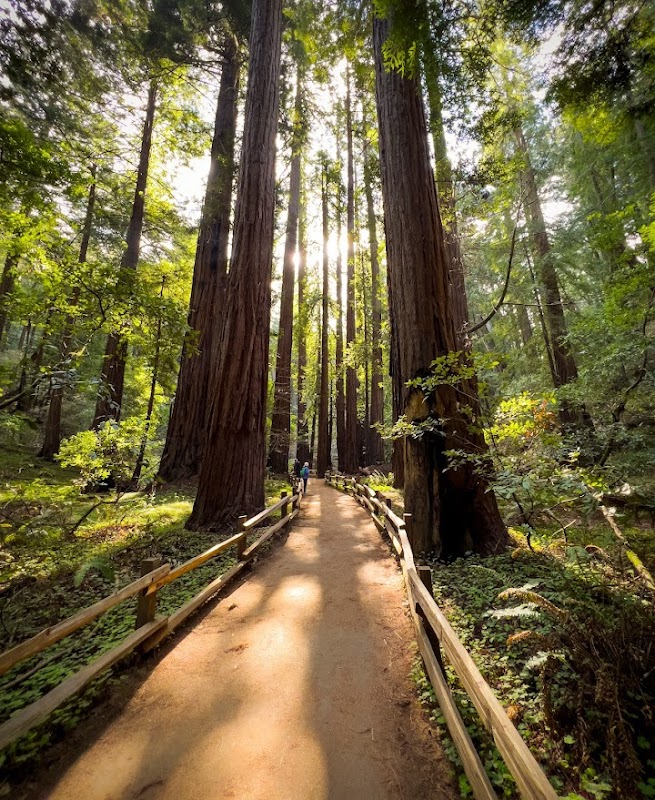
Savor the Sebastopol Slow Food & Music Festival: A Culinary Adventure in Santa Rosa
Experience Santa Rosa’s Sebastopol Slow Food & Music Festival, where rich local flavors meet live music in a vibrant community celebration. This event offers a hands-on look at farm-to-table culture with practical workshops, local crafts, and a lively atmosphere perfect for food and music lovers alike.
Bring Comfortable Shoes
The festival spans streets and fields with mixed terrain; wear sturdy, weather-appropriate footwear to stay comfortable throughout the day.
Arrive Early
Parking fills quickly and the best food and workshop spots go fast; plan to arrive early to maximize your experience.
Stay Hydrated
California’s autumn sun can be strong; carry a reusable water bottle to keep hydrated while exploring food stalls and performances.
Use Public Transport or Rideshares
Consider alternative transport to avoid parking hassles and reduce your environmental footprint during the festival.
Savor the Sebastopol Slow Food & Music Festival: A Culinary Adventure in Santa Rosa
The Sebastopol Slow Food & Music Festival in Santa Rosa, California invites Adventurers and food lovers to a unique blend of taste, rhythm, and community spirit. This annual event transforms the heart of Sonoma County into a lively playground where slow food culture and live music converge to celebrate local growers, chefs, and musicians.
Set against the vibrant backdrop of early autumn, the festival gives visitors a chance to experience the region’s agricultural richness firsthand. Expect long tables where local farm-to-table dishes meet the rhythms of everything from folk to blues. Walking through the festival grounds, you’ll feel the pulse of the community as the sun warms the air and the scent of fresh herbs and grilled produce teases your senses.
Beyond tantalizing your palate, the event embraces sustainability, encouraging awareness of where our food comes from and the rhythms of the seasons. Local farmers stall near orchard views, daring you to discover vegetables vibrant with life and fruits heavy with promise. Musicians, as if called by the land itself, fill open spaces, coaxing feet to tap and bodies to sway.
Planning your visit is as much part of the adventure as the festival itself. Parking is available but fills quickly; consider carpooling or ride shares. Comfortable walking shoes are essential—the festival spreads across streets and grassy fields that can become slippery if it rains. Hydration is key, especially under the California sun, so bring a reusable water bottle to stay refreshed.
Timing your visit enhances the experience. Early afternoons offer a relaxed atmosphere for tasting and talks, while evenings bring a lively crescendo of musical acts that carry the event’s energy long after sundown. Don’t miss the educational workshops about artisanal food crafting and sustainable farming—practical takeaways that connect you more deeply to the land and your plate.
The festival’s challenge is this vibrant authenticity: engaging with something fiercely itself, an event that refuses to be rushed. It requires patience to savor, an openness to learn, and a readiness to move with the shifting rhythms of food, music, and community spirit.
Whether you come as a casual food explorer or a dedicated epicurean, the Sebastopol Slow Food & Music Festival offers a grounded yet spirited adventure—a reminder that adventure isn’t always measured in miles but in moments savored and connections made.
Nearby Trips
All Adventures
Boat Charters
Water Activities
Adventures near Santa Rosa, California
Discover the unique and memorable adventures that make Santa Rosa, California special.
Frequently Asked Questions
What type of food can I expect at the festival?
The festival features farm-to-table cuisine prepared by local chefs using seasonal, organic ingredients. Expect dishes showcasing Sonoma County’s produce alongside artisanal breads, cheeses, and wines.
Are children and families welcome at the festival?
Yes, the event is family-friendly with activities geared toward all ages including music and educational workshops about sustainable farming.
Is the festival accessible for people with mobility challenges?
Most of the festival grounds are flat and wheelchair accessible, though some grassy areas may be uneven. Accessibility services and parking are available but should be arranged in advance.
What makes the music at this festival unique?
The lineup prioritizes local and regional musicians, blending genres like folk, blues, and Americana. Performers often interact with the crowd, creating an intimate and authentic atmosphere.
Can I attend workshops without purchasing a festival ticket?
Workshops are included in the festival admission. Some special classes or tastings may require additional registration or fees.
What environmental practices does the festival promote?
The festival emphasizes sustainability through zero-waste initiatives, composting stations, and encouraging visitors to bring reusable items to reduce refuse.
Recommended Gear
Sturdy Walking Shoes
Protect your feet across streets, grassy areas, and possibly damp ground for comfortable all-day exploring.
Reusable Water Bottle
Keep hydrated under the autumn sun without relying on single-use plastics.
Light Jacket or Layer
Evenings can bring chill; layering helps you stay comfortable from day into dusk.
Sun Protection (Hat, Sunscreen)
UV rays remain strong; protect skin and eyes during outdoor activities and walks between stages.
Local Insights
Hidden Gems
- "The nearby Laguna de Santa Rosa offers a quiet trail for birdwatching just minutes from the festival."
- "Explore local heirloom varieties at farm stands, often overlooked but full of historic flavor."
Wildlife
- "Keep an eye out for Western bluebirds near orchard edges and occasional red-tailed hawks circling overhead."
History
"Sebastopol and its surroundings have long been agricultural hubs, with a strong local food movement dating back to the 1970s that helped shape the Slow Food Festival’s ethos."
